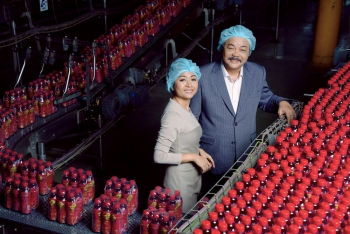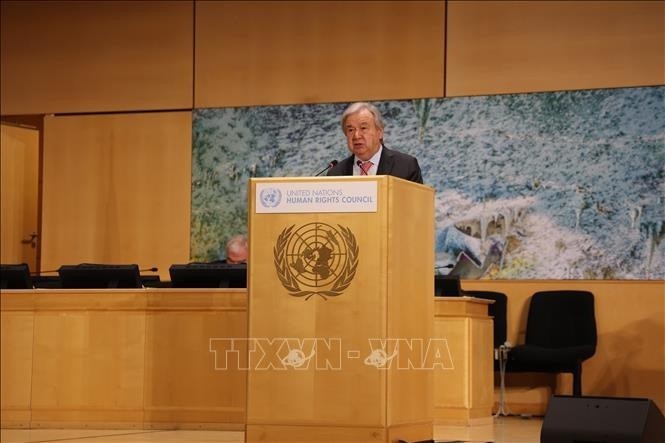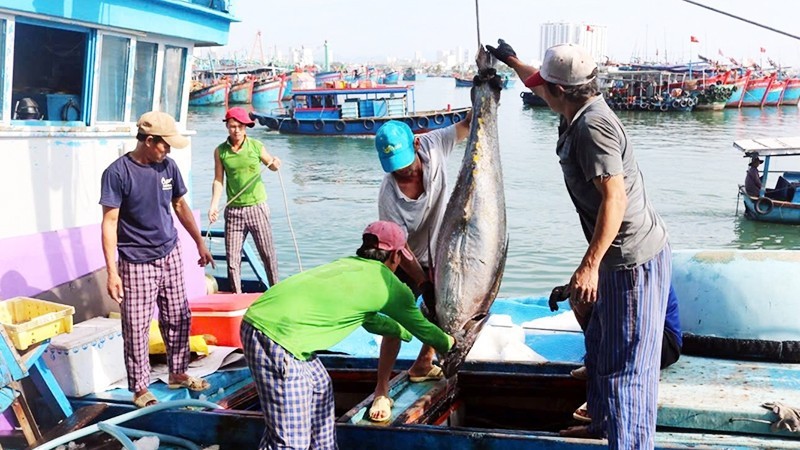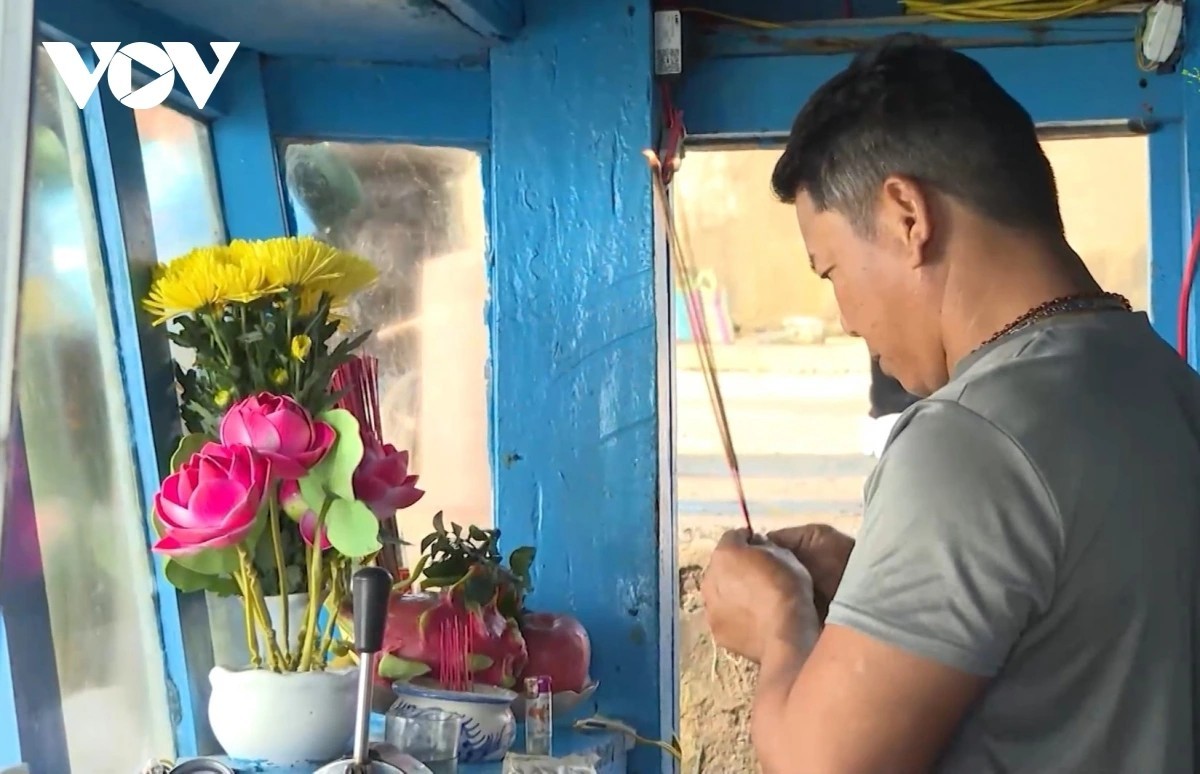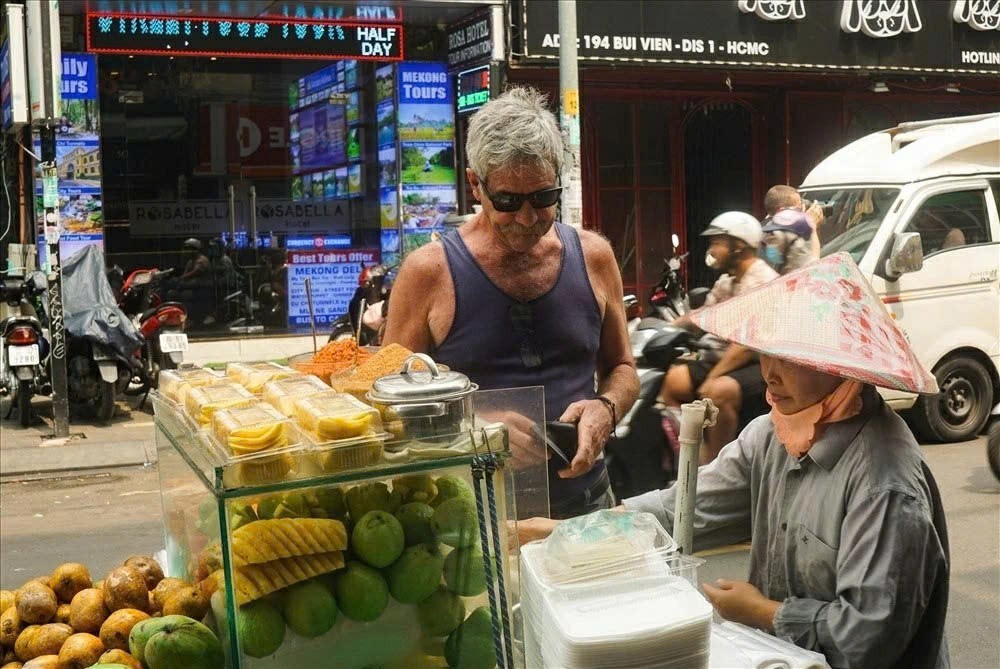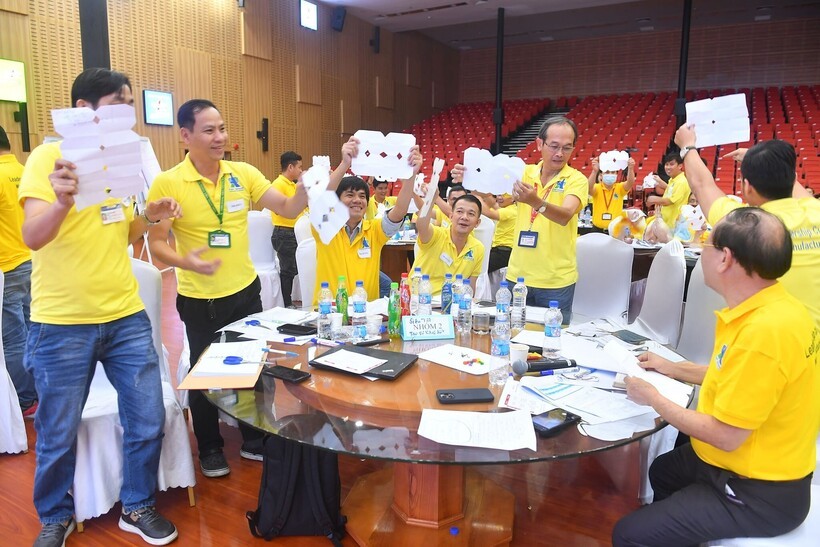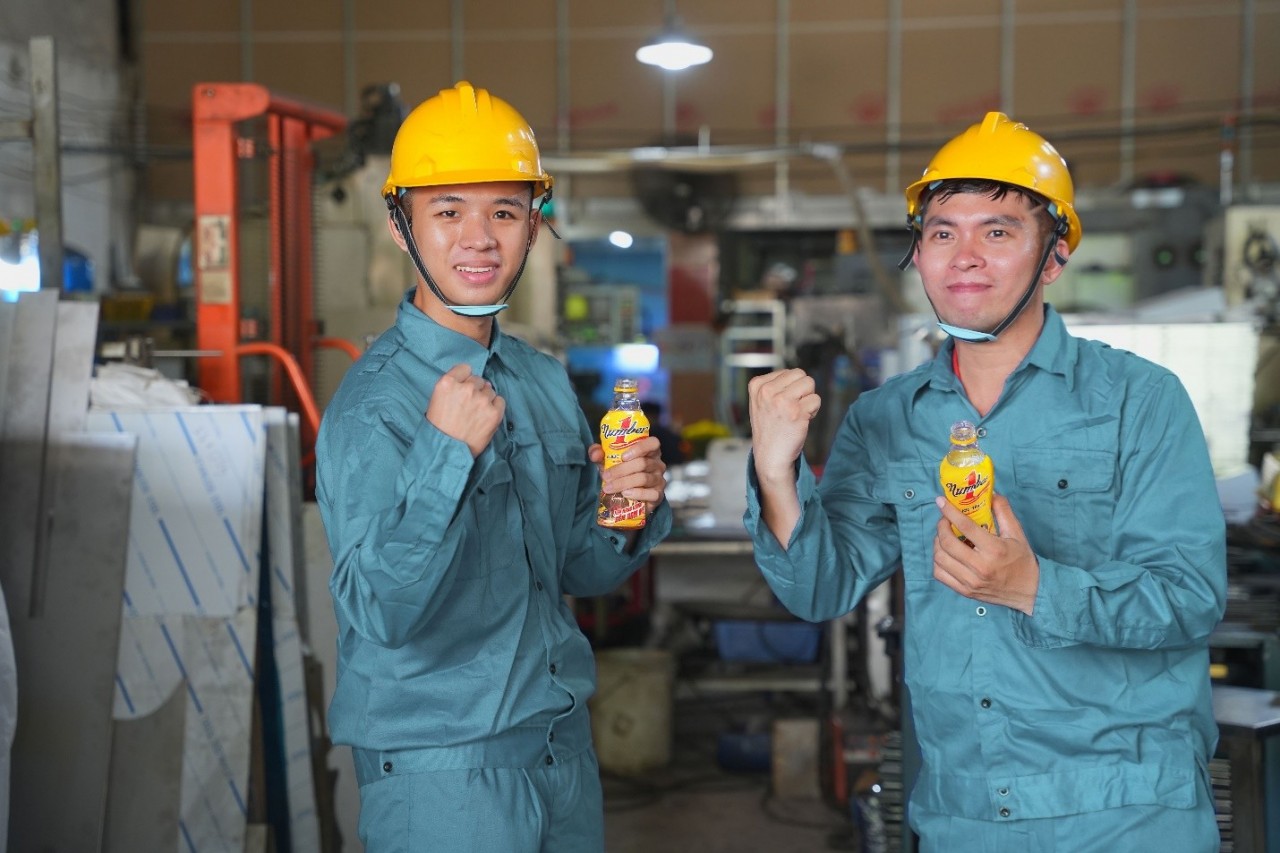How CEO Tran Quy Thanh helps attain initial success for Tan Hiep Phat
| Tan Hiep Phat's solid foundations and ambition to springboard to int'l market | |
| The role of focusing on local wins - Phuong Uyen Tran | |
| Making the Leap for global competition - Phuong Uyen Tran |
 |
| Ms. Phuong Uyen Tran and her father, Mr. Tran Qui Thanh (Photo: Vietnam Daily) |
Phuong Uyen Tran shared on her book "Competing with Giants" about her father, CEO Tran Quy Thanh, who helps attain initial success for Tan Hiep Phat to become the largest privately-owned soft drink provider in Vietnam.
He decided to make a big investment in PET bottles made of polyethylene terephthalate and aseptic technology, which keeps the whole process sterile and eliminates the need for preservatives. THP became the first company in Southeast Asia to invest in this kind of technology, purchasing a production line capable of producing twelve thousand bottles per hour.
But my father had also learned a valuable lesson from the launch of Number 1 Energy Drink. The product shortage had helped foster demand, but it had not been so good for THP's immediate bottom line. This time around—after getting the first test results back—he purchased a further five production lines capable of producing twenty-eight thousand bottles per hour. He also bought similar capacity for the pre-form bottles.
Then he set to work on the marketing campaign. One of the reasons why Zero Degree entered public consciousness so quickly was its jingle: "Không lo căng thẳng mệt mỏi, cuộc sống", or, in English, "Don't worry about stress. Cool down your life." |
In Vietnamese, this runs off the tongue as easily as famous slogans such as, "Break me off a piece of that KitKat bar," do in English. Jingles have become very popular in the country as they once were in Western countries during the 1960s and 1970s. But the viral effect of social media has turbo-charged them into twenty-first century Vietnam.
Then, as it is now, Zero Degree's target market was youthful. This is not that surprising in the context of the country’s demographics. As discussed in chapter 2, Vietnam has a population bulge. According to Nislsen, Millenials, like myself, account for 30 percent of Vietnam’s population. We are a twenty-seven-million.
Thanh decided to put his name and face on the bottle
The product was packaged in red (the yang color), and while the bottle itself has a modern shape and feel to it, the lettering and fonts feature a more traditional motif. He felt this would emphasize TCM's ancient lineage.
| After some initial hesitation, he also agreed to put his own name on the drink and put his face on the bottle as a black and white line drawing. One big reason is because his first name, Thanh, also means cooling. It perfectly suited a brand message all about purity and cleaning by flushing out toxins. Placing him in the black and white era enhanced the product's historical pedigree. And he agreed it was a good move, as he passionately believes the product gives him a healthy glow and there is a double meaning to the name. From a marketing standpoint, putting his name on the brand had two further advantages. First, it would be easy for customers to remember, thereby helping sales. Second, we thought our own employees would feel an emotional tie to the brand and really put their hearts into making it a success. |
When it came to the second "P," my father settled on the time-honored strategy of pitching the price at a premium. He also wanted to recoup his huge investment. He decided to charge VND8,400 for a 500m1 bottle compared to an average of VND7,000 for other ready-to-drink teas.
How was he able to achieve this? Initial market research suggested consumers were willing to pay more because they believed our product had additional health benefits over standard drinks.
They were also reassured by THP's aseptic production technology because they knew the company would not only adhere to stringent hygiene and safety standards but would also be manufacturing a product with no need for industrial colorants or additives.
 |
| (Photo: Bao Nguoi Lao Dong) |
Earlier in the chapter, I highlighted how THP always works with the best creative minds to develop marketing campaigns for our products. Nevertheless, one of the campaigns my father is most proud of is the one he personally developed for Number 1 Energy Drink. In the run-up to launch, THP ran a series of quick-fire adverts across all forms of media (TV, print, billboard) stating, "Number 1 is coming to Vietnam."
But there was no explanation about what Number 1 was. Everyone was curious. Quite a few people wondered whether it meant the CIA was coming back.
At one point there was even talk in government circles that Number 1 needed to be banned, because it must be an American company up to something crazy. This mind-set tells you a lot about my country's underlying attitude to the US at the time. There was still a lingering fear about the power and activities of America Inc.
Just before the product went on sale, we ran a full-length TV advertisement and revealed who was actually coming. And it was an American—of sorts.
The advert opens with a scene from the Mojave Desert in California. Through the shimmering heat, a cowboy blows up the dust, riding his motorbike to the sound of Ennio Morricone's classic quench his spaghetti Western music. He stops at a remote shack to q thirst on a bottle of Number 1. But the cowboy is ethnically Vietnamese and so is the beautiful woman who serves him.
During the 1980s, the term "vuot bien" (to cross the border) became a common term in Vietnam. As those people return and memories of the war fade into the background, perhaps those phrases will come to have a new meaning as we progress into the twenty-first century. To cross the border will assume a positive rather than a negative connotation, symbolizing Vietnam's growing confidence on negative co the world stage rather than a flood of refugees.
Of course, my father has his own personal proverb about where he sees our company heading: "Great success comes to those who set sail for the sea," is his refrain. "No success comes to those who stay moored in the river."
 |
| Phuong Uyen Tran (Photo courtesy of Phuong Uyen Tran) |
| About author Phuong Uyen Tran Working as a powerful business woman, Forbes published author, Phuong Uyen Tran is a model of success in Vietnam. Phuong Uyen Tran is also a special contributor for Vietnam Times. Her writing, including “Competing with Giant” book, and her latest articles are to advise and inspire young people to start-up, overcome challenges and reach out to the world. It is the story of a little girl taking the great responsibilities for a corporation and devoting herself to society. Presently, Phuong is in charge of THP’s marketing, public relations, and CSR programs across the 63 provinces of Vietnam and 17 countries where they export THP’s beverages. She is also a member of the Young Presidents Organization and an Executive of the Beverage Association of Vietnam. |
 | Combating Inner Heat, The Key to Success - Phuong Uyen Tran Inner heat is an ancient concept widely understood in the East. It happens when the body's harmony becomes out of balance resulting in internal processes. |
![How an Asian family business won over multinationals? [VIDEO] how an asian family business won over multinationals video](https://vietnamtimes.thoidai.com.vn/stores/news_dataimages/phuonglyvnt/062020/03/07/croped/thumbnail/5349_phuong_tran_27.jpg?rt=20210119094556) | How an Asian family business won over multinationals? [VIDEO] “It is never easy to compete with giants, let alone face them down", says Phuong Uyen Tran, Deputy CEO of Tan Hiep Phat Beverage Group. In ... |
 | Suggestions of five powerful words for sexism elimination in the board room - Phuong Uyen Tran Sex discrimination towards women in the boardroom seems be even seen in the most developed countries in the world struggling to eliminate it. In this ... |
Most read
Recommended
 Women in Business
Women in Business
Recharge with Number 1 to Become a Better Version of Yourself
 Women in Business
Women in Business
The Journey of Passion Behind the Kitchen: Stories of Those Who Choose the Culinary Path
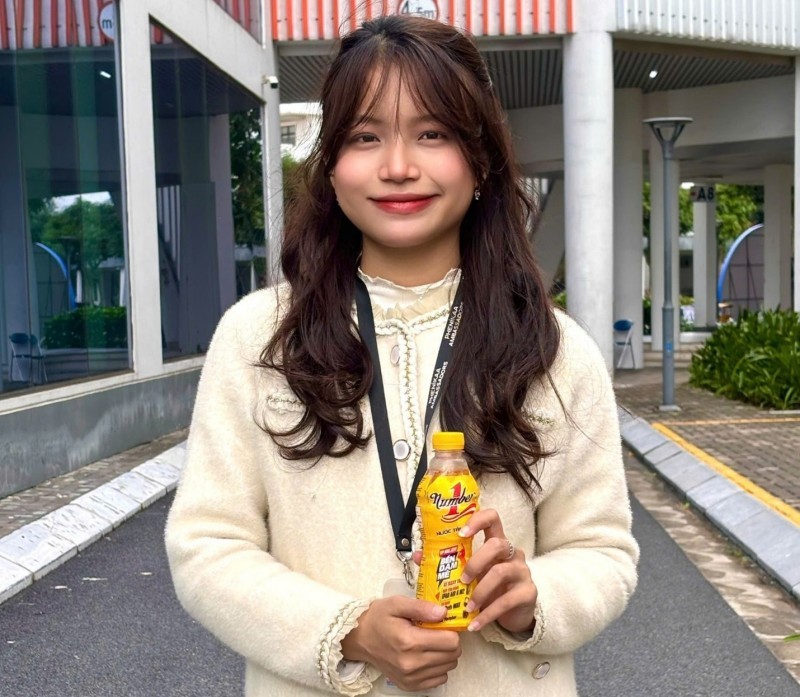 Women in Business
Women in Business
Young Female Tech Student Proves Her Number 1 Spirit, Step by Step Chasing Her Research Dream
 Women in Business
Women in Business
Gen Z Travels Far Just to Sleep: When Tourism and Green Tea Help Cool Down Life
Popular article
 Women in Business
Women in Business
From Deadlines to Nature: How Vietnamese Youth Are Cooling Down Burnout
 Women in Business
Women in Business
The Number 1 Girls: When Passion Is Fueled, Limits Become Only the Starting Point
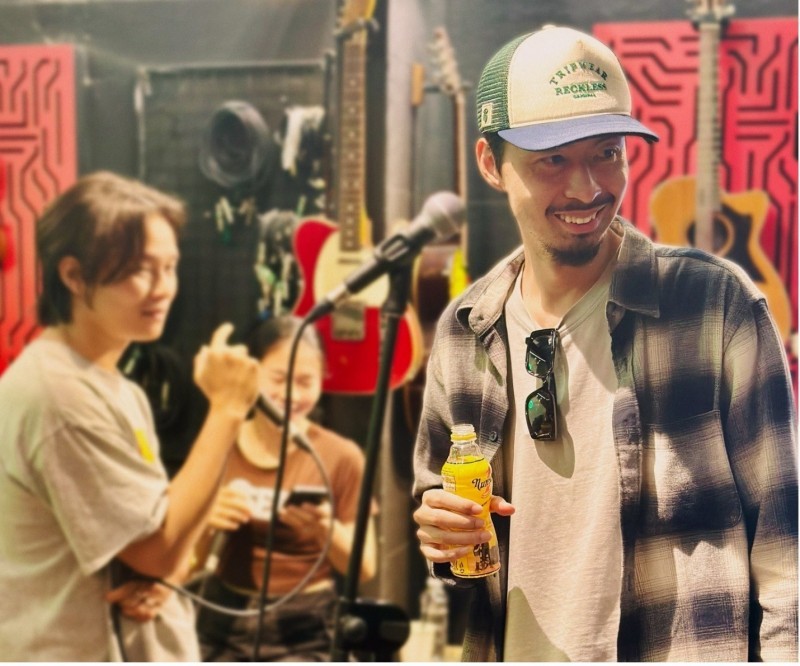 Women in Business
Women in Business
Number 1: A Vietnamese Energy Icon Fueling the Passion of a Generation
 Women in Business
Women in Business



